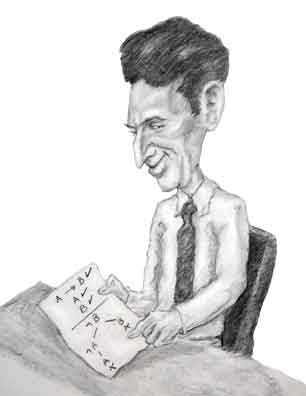Richard Jeffrey

Richard Jeffrey was appointed professor of philosophy at Princeton in 1974 and brought to the venerable ivy halls of that great university his specialty in epistemology - that is, trying to figure out how people really know something rather than thinking they know something when all they really are doing is just believing something. Although many people don't realize it, completely holding with and totally embracing a belief and even being willing to die for it (or as is distressingly common, being willing to make others die for it) is no measure whatsoever of an idea's truthfulness.
Closely related to his work in epistemology were Dick's studies in probability theory, particularly subjective probability. Mathematicians tell us that the probability of an event is the number of times that particular event occurs compared to the total possible events. Dick's subjective probability for an event is defined how many pennies out of a dollar you are willing to bet the event will happen. Of course what you wager will change depending on how much more you learn about the event. But that, Dick said, is exactly the point.
But it's likely Dick's greatest influence was as a teacher. He wrote the first textbook that advocated truth trees as the best way to determine if logical arguments were valid or not. This technique is much more efficient than writing out the cumbersome, laborious, and at times quite impossible truth tables so beloved by Lewis Carol and other sadistic philosophy instructors who took great delight in tormenting students of logic for generations. Truth trees can even make the analysis of arguments fun. In fact, it was after reading Dick's book that CooperToons was able use truth trees to correct St. Thomas Anselms' ontological argument (which will open in a new window if you click the link).
References
Formal Logic: Its Scope And Limits, Richard Jeffrey. Originally published in 1967 by McGraw-Hill this has gone through at least three editions. CooperToons prefers the 2rd edition, although he has not really read any of the later ones. The second edition has a bit more interesting examples which while teaching logic can leave the reader laughing so much he or she will LAWBW.
Subjective Probability: The Real Thing, Richard Jeffrey, Cambridge University Press (2004). Published after Dick's death this book is a bit harder going for the mathematically challenged. But it introduces the ideas of the topic.
It was only after purchasing this sucker that CooperToons found out it was available online for free from http://www.princeton.edu/~bayesway/Book*.pdf. Since it's from Princeton, it's a legit download.
Probabilistic Thinking, Richard Jeffrey, "http://www.princeton.edu/~bayesway/ProbThink/" Another online book by Dick also from Princeton.